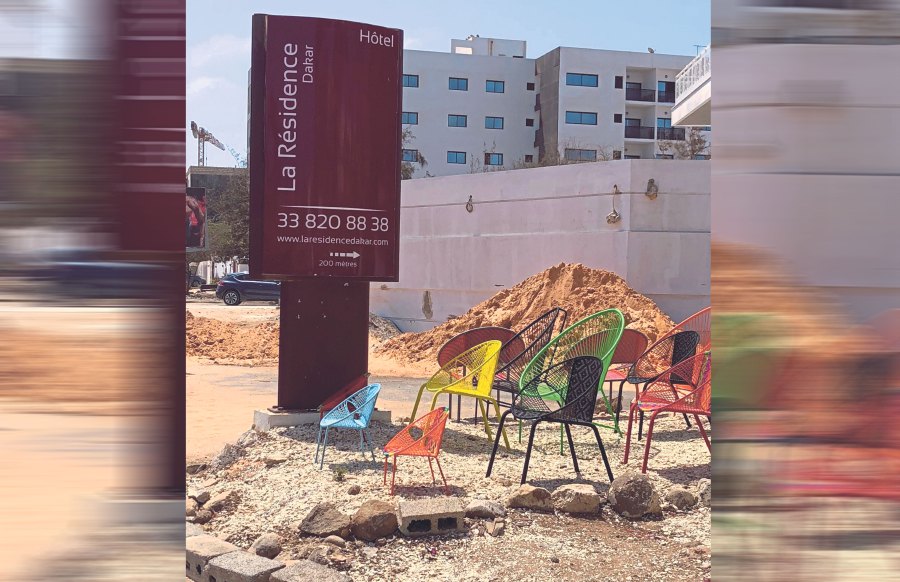Everyone knows that some countries in Africa are French-speaking. Unfortunately for this Malaysian, Senegal happens to be one of them. My French was practically zero when I first set foot in Senegal.
Anyone who starts learning a new language after age 40 will tell you it is no easy task. Anyone who learns French — ever — will tell you that it is not an easy language. Combining the two results in hilarious misunderstandings, frantic hand gesturing and the sinking feeling that this is Fate's way of paying you back for all those times you looked down at others.
As the years passed and I grew more confident in French, something bizarre happened. The Senegalese became very fluent in English. Almost overnight, it would seem. Even the guy at the checkout counter of my grocery store would ask: "Is that all?" when he finished ringing up my purchases.
Whenever I went to see one of my contacts, MTN, an influential man in the government, I always had to bring a translator with me. But by my second year in Senegal, MTN could joke with me in English while my French went absolutely nowhere. This was truly a nation of polyglots — people who can easily pick up languages even without going to classes.
When I first started working in Senegal, everyone at my organisation spoke French or English. Some staff had been with us for at least two decades and still could not speak Bahasa Malaysia. This past year, at least two of the staff learnt to speak Bahasa Malaysia fluently. Papa Diouf, the driver, picked up Bahasa Malaysia from Indonesians that he had met. Alpha Bodian picked up Bahasa Malaysia when he studied in Malaysia and worked at Universiti Malaysia Kelantan.
Sigh, I miss the days when I could speak in Bahasa Malaysia on the phone to my family or bosses and no one here would be wiser to the conversation.
But Senegal is slowly "opening up". I'm not sure whether they would consider it thus, but for us Asians who live abroad, the true measure of whether a place is international is whether it has Asian grocery stores.
In 2018, there was a Korean grocery store above one of these places that sold wigs. There was nothing I could buy — I am not a fan of Korean noodles and the sauces and bottles were not familiar to me at all.
I tried to convince Malaysian businesses back home that there was a market in West Africa if only they would venture here. After all, the Senegalese who had come into contact with Asians seem to adore Asian food. But my pleas — motivated by purely selfish reasons, of course — fell on deaf ears.
Then in 2019, Hypermarché
Eksklusif, a standalone grocery store in Dakar, suddenly began carrying Asian sauces and pastes. They started with Thai products — sweet chilli sauce, fish sauce and Thai fragrant rice. Then the Indonesians brought in their instant noodles and sweet pastes. The Indians were not far behind with their masala sauces, curry mixes and papadam.
Today, the Asian section of many grocery stores, including some of the French-owned brands, stretch from one end of the aisle to the other — a testimony to the growing popularity of Asian food. It wasn't until earlier this year that we Malaysians started noticing Maggi chilli sauce being sold, with the stamp of "Malaysian Chilli" on it. Life has been easier with familiar brands such as Lee Kum Kee and even Kara coconut milk on the shelves these days.
In just 16 months, I have witnessed the opening of two Chinese stores (one of which is a hypermarket), three small Indian stores and another Korean store just within my neighbourhood. The takeover has begun!
It really is amazing to see how much this small West African city has transformed in three short years. It bodes well for the future. But how the administrators handle all this change will set the course for the country. As it is, new buildings have started to play havoc with traffic flow, as construction spills out onto paved roads with no scaffolding net as a safeguard, much less the required 3ft distance from the border of the land.
Whatever happens to Dakar in the next few years, one thing is almost certain — it will change almost beyond recognition in a short time. Whether the change is for the better remains to be seen.
The writer is a foreign service officer, who writes on international affairs with particular emphasis on Africa



